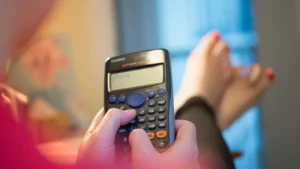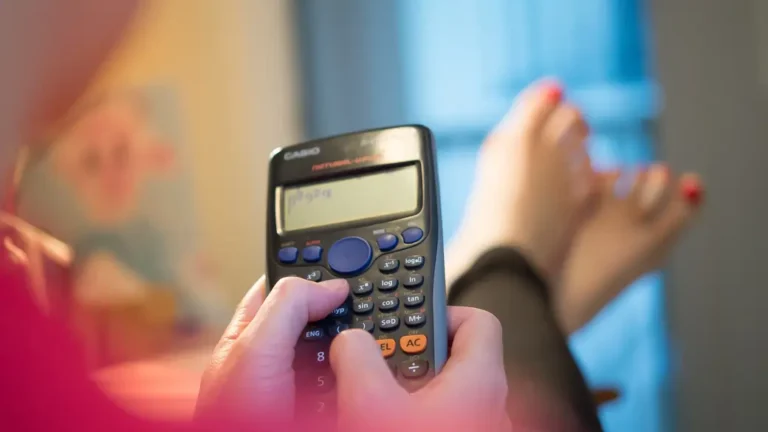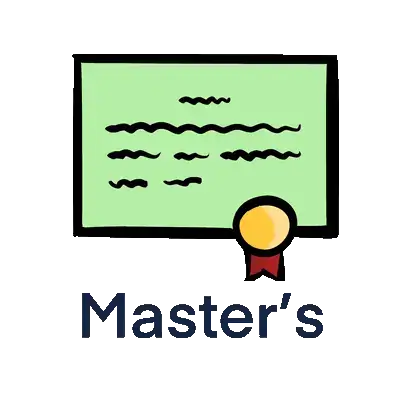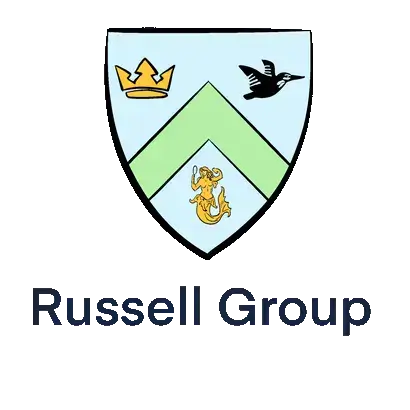9 ways to get a 9 in GCSE Maths
In this article, Samuel, an experienced and fully qualified maths teacher, presents his 9 tips to make a level 9 in GCSE Maths, much more achievable.
How do I get a 9 in GCSE Maths?
GCSE Mathematics can sometimes feel overwhelming. To get a grade 9 is no mean feat; grade boundaries change each year and you have to be the best of the best. Whether you are a maths whizz or are just starting out, don’t worry, with my top tips you will be well on your way to a GCSE grade 9 in no time.
Tip 1: Little and often
When it comes to mathematics, and learning in general, starting as soon as possible and doing small amounts of work on a regular basis is the way to go. GCSE maths is a big course, with a lot of content, and breaking it down into bite-size chunks will really help your understanding. Aim to spend a short period of time each day (even if it’s just 15 minutes) doing some maths practice. A great resource for this is the Corbett maths 5 a day. Over the course of a few years, those minutes will seriously add up.
Tip 2: Mathematics is not a spectator sport
To practice maths you have to be active.
Reading your book and looking at worked examples is a good start, but to really understand how to apply the techniques you’ve learned you have to actually do questions. Dive in as soon as you can and solve as many problems as you can; the more you do, the more you’ll see your GCSE grades improving!
Tip 3: Focus your efforts
One way to go above and beyond is to really focus your time and effort on the questions and topics you find most difficult. It can be tempting when revising to stick to the easier questions that you know you can already do (after all, it feels good to be right!) but you should instead be laser-focused on the questions you don’t know how to do yet; that way you’re always improving.
Tip 4: Be a quick calculator
In your exam every minute is precious.
There are many small calculations to be done in amongst all of those exam questions.
Each exam-board has some papers where calculators aren’t allowed, so don’t overlook the value of mental maths. You should be able to quickly and accurately calculate simple sums, know your times tables up to 13 by heart and be confident working with common fractions and decimals (halves quarters, tenths etc.)
As well as mental maths, make sure you are using the same calculator you will be using in your calculator papers from the start of your course (don’t use your phone calculator!) and learn all of the functions it has. For example, most calculators can store numbers in memory, give answers in standard form and give results to a specified number of significant figures, so make sure you get to know all the useful things your calculator can do for you.
Tip 5: Past paper perfect
Most people leave past papers much too late.
You should start doing past papers as soon as possible. At first, you won’t have covered everything in the paper and that’s ok, but do all of the questions you can and read the others too; familiarity with the way that questions are presented will help you feel more relaxed in the real exam.
If you find yourself running out of exam papers to do, it’s fine to take a look at past papers from other exam boards as you’ll find lots of similar questions (but skip anything you haven’t covered.)
Find your exam board’s past papers below:
Tip 6: Mark scheme master
As well as looking at past exam papers, take a look at the mark schemes too.
Each exam-board makes a selection of papers and mark schemes available on their website and you should definitely familiarise yourself with them. Mark schemes teach you exactly what marking points the examiner is looking for and they often show you the most efficient method of solving a question, which is valuable to know when you only have a limited amount of time in your exam. They may also show alternate methods, which can be a great way to check your answers.
Tip 7: Out > in
When revising, it can be tempting to just re-read your class notes or textbook, maybe highlighting as you go, but you should avoid this as much as possible.
In learning, getting knowledge out of your brain is much more effective than trying to put knowledge into your brain. Think about your exam; the hard part isn’t reading the question, but remembering all of the things you need to do to answer the question. As such, when you revise, make sure you focus on how to do each step from memory, test yourself often and ask yourself lots of questions.
Questions you ask yourself can be as simple as “name two ways to solve a quadratic” or as complex as “how does -f(x+a) transform the graph of f(x)?” Flashcards can also be great, but make sure you spend much more time using them than you do making them!
Tip 8: Make your own tests
Thinking up your own exam questions is a great way to apply what you learn. Start by looking at some past papers and mark schemes, then make up your own version of each question along with a mark scheme style solution.
Try to present your question and mark scheme solution in the same kind of formal language that your exam-board uses. Eventually, you should be able to make up and solve exam-style questions on any topic without using a past paper.
Tip 9: Enjoy it (really!)
Mathematics is a human endeavour of understanding.
We do maths to better understand the world around us, as well as to provide ourselves with a stimulating challenge. Try to embrace the positives of mathematics, even if it isn’t your favourite subject. Look for opportunities to do maths with other people and enjoy the process of first struggling then understanding and overcoming your mathematical obstacles.
Take pride in being able to apply the methods you learn to solve questions, enjoy the puzzle-solving aspects of maths and relish in the satisfying familiarity of applying those methods you’ve already mastered.
Final Thoughts
However you feel about maths right now, my takeaway message is this: with some patience, persistence and practice you will be well on your way to a GCSE grade 9 and hopefully you’ll even enjoy it too.









I want my children to get A in their GCSEs
Hi Chidimma
Thanks for your comment! We hope you (and your children) have found this guide useful. Please check out our guides for other GCSE subjects as well. If you would like support from an Owl Tutor, please feel free to get in touch and we will be happy to help.
Best wishes,
Ed
me too!